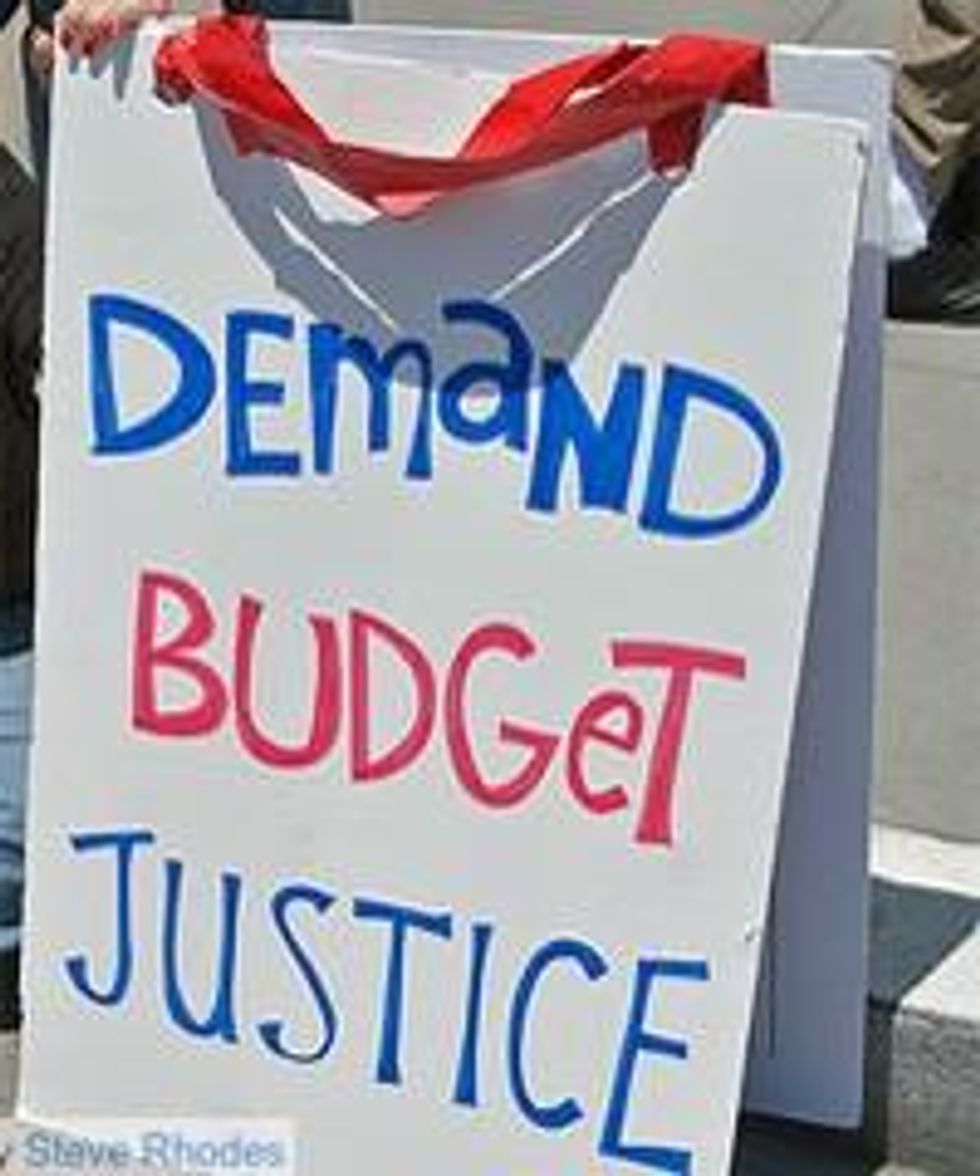Hold the applause: Extending the payroll tax cuts is a bad deal for nearly 9 million disabled Americans who rely on Social Security Disability Insurance for survival.
Like millions of Americans, my first paycheck of 2011 was slightly larger because of the tax relief provided by the one-year reduction in my Social Security payroll taxes. But I didn't feel much of a sense of relief. As a person with a disability who will someday soon need Social Security Disability Insurance, I feared that raiding Social Security was a dangerous precedent that would continue far beyond one year.
American workers usually pay a tax of 6.2 percent on their earnings to build the Social Security Trust Fund. Employers pay the same percentage of tax on wages paid. Workers who are not of retirement age but have paid these taxes for a certain number of years can receive income through Social Security Disability Insurance if they become disabled for a year or longer and thus are unable to work and earn at their previous capacity.
But now I fear that this insurance pool is in jeopardy.
In 2011, workers contributed only 4.2 percent and employer contributions were unchanged. That tax cut was supposed to be for one year but President Obama has pushed hard to extend it for another year.
It's true that transfers from general revenues have been used to replenish the Social Security Trust Fund to fill the gap from reduced payroll tax revenues.
But Social Security is funded by payroll taxes so as to make it an earned benefit, giving it stability by insulating it from the fickle funding whims of Congress.
The National Committee to Preserve Social Security and Medicare maintains that continuing the reduction in workers' contributions poses a "grave threat" to the Social Security program because by financing it through general revenue, Social Security would "suddenly have to compete with other programs, such as funding for defense and education."
The president's insistence on continuing this reduction bears out the committee's additional fear that the contribution level will never return to 6.2 percent because no politician will risk being accused of raising taxes on working people. Therefore, Social Security's dependence on other revenue sources just to keep pace will be perpetual.
How long before the enemies of Social Security in Congress seize this as an excuse to reduce benefits and/or restrict eligibility?
Workers who became disabled and collect the Social Security Disability Insurance we earned are not responsible for the federal deficit or the dismal economy.
We, of all people, should not have to pay the price.

